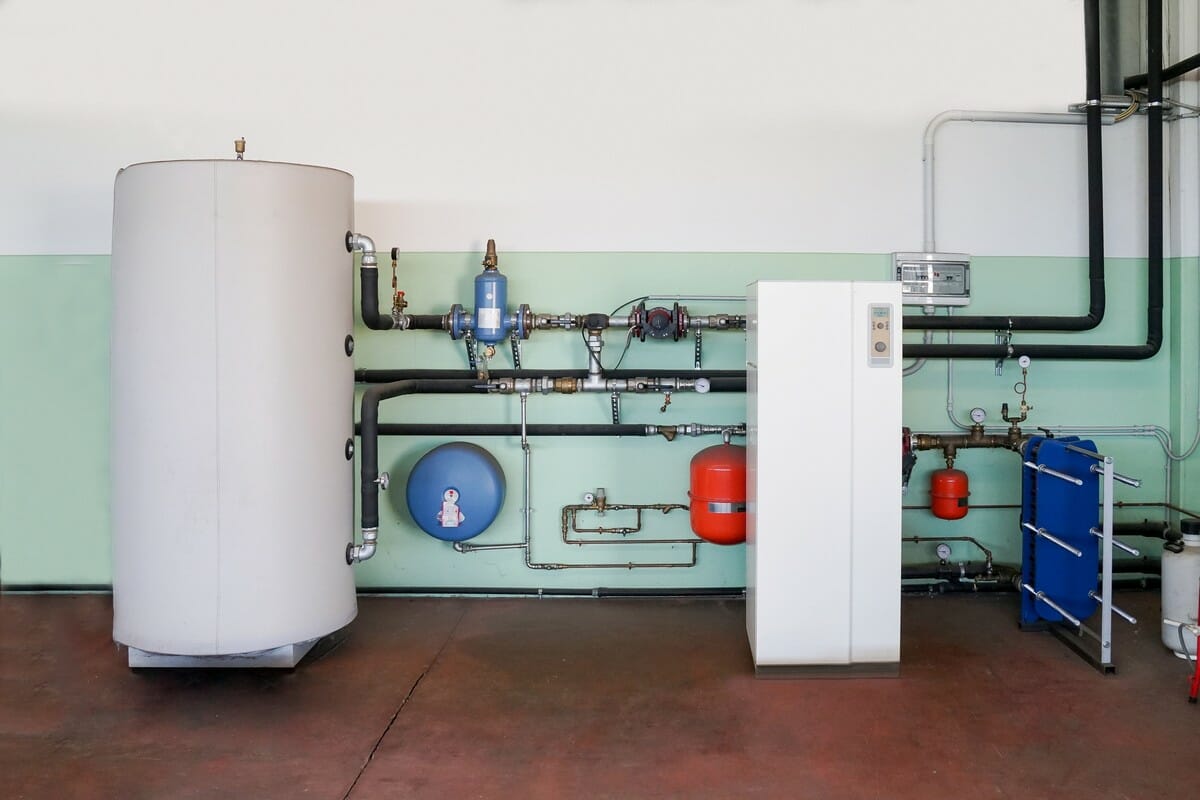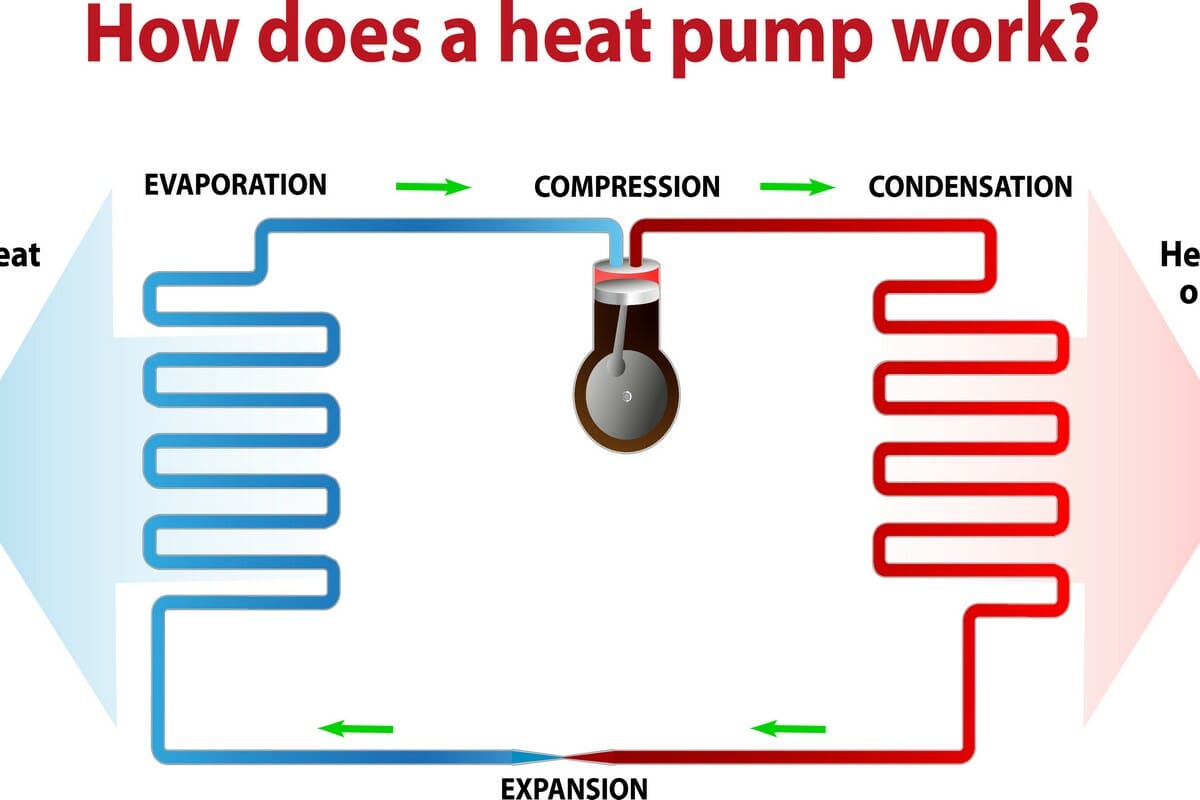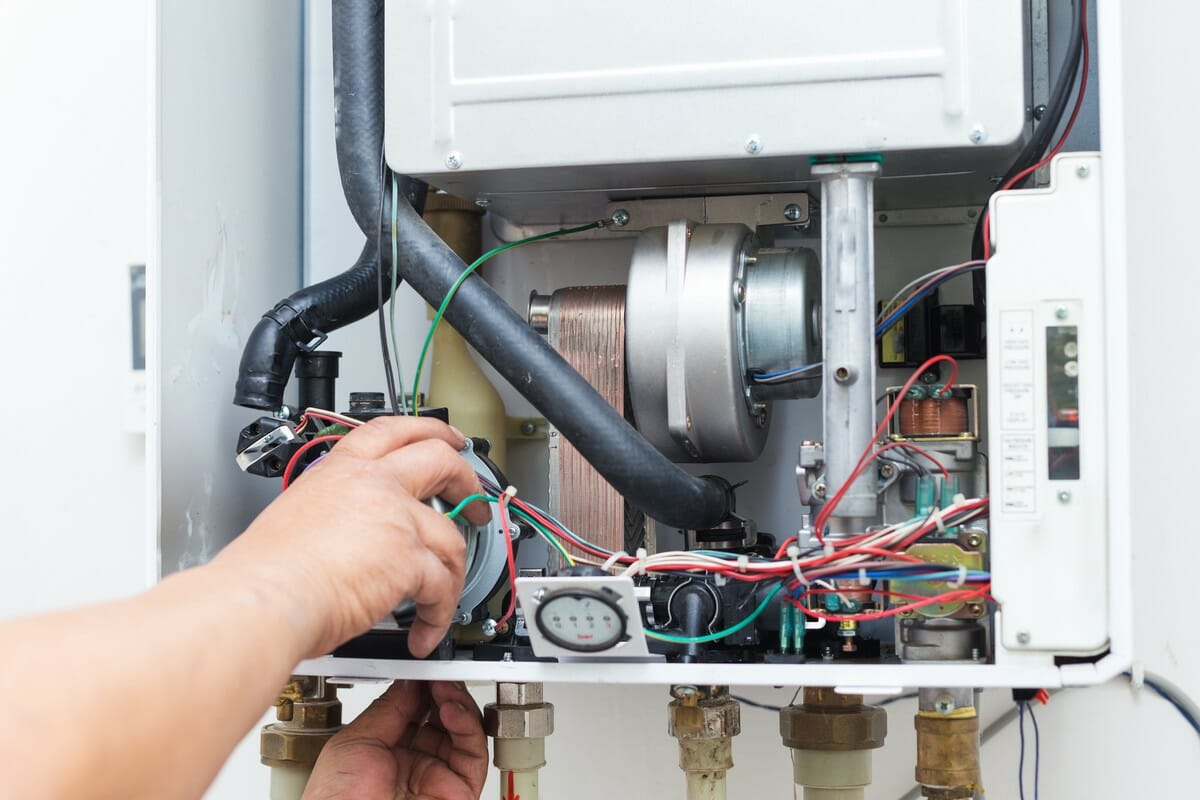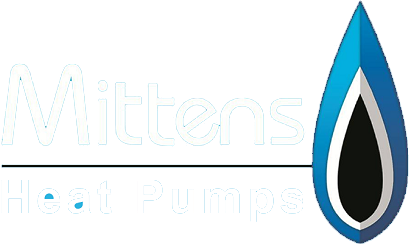Central Heating Alternatives
Table of Contents
- 1 - What are the Alternatives to Gas Central Heating?
- 1.1 - Why Choose a Greener Way to Heat Your Home?
- 1.2 - Our Guarantee
- 1.3 - How Much Energy will I Save?
- 1.4 - How Much Could I Save if I Replace my Boiler?
- 1.5 - How can I Make the Most of the Renewable Heat Incentive (RHI)?
- 1.6 - Is a Heat Pump a Cost-Effective Heating Alternative?
- 1.7 - Heating Pump Unit Cost
- 1.8 - Installation Costs for a Heat Pump
- 1.9 - Savings
- 1.10 - Maintenance
- 1.11 - Types of Heat Pumps
- 1.12 - How do Heat Pumps Work?
- 1.13 - Heat Pump Type
- 1.14 - How Does a Ground Source Heat Pump Work?
- 1.15 - How Does an Air Source Heat Pump Work?
- 1.16 - What are the Benefits of Biomass Central Heating?
- 1.17 - Can I get Solar Thermal Panels for Water Heating?
- 1.18 - Can I get a Grant to Replace my Boiler?
- 1.19 - Government Grants and the RHI
- 1.20 - What is the Best Alternative to Gas Central Heating for me?
- 1.21 - Which Heat Pumps Work the Best in Extreme Cold Climates?
- 1.22 - Which Heat Pumps Have the Least Maintenance Costs?
- 2 - Which Heat Pumps Have the Longest Lifespan?
What are the Alternatives to Gas Central Heating?

With such a large sum of money needed to power home heating systems, it is essential to minimise monthly outputs by finding the best possible alternative to gas central heating systems. Luckily there are lots of efficient forms of home heating systems that will save you money in the long term as well.
Why Choose a Greener Way to Heat Your Home?
- Because a greener way to heat your home such as heat pumps is very easy to maintain and cost-effective – it will save you a considerable amount of money in the long term. Having an efficient and cost-effective heating system is vital as fuel costs rise, and it’s one of the main steps you can take to reduce your carbon emissions.
- In an effort to tackle the worsening climate crisis, the UK government says gas boilers must be replaced by low-carbon heating systems in all new homes constructed after 2025.
- Environmentally friendly heating solutions don’t pollute the environment. Other sources of heating such as coal, gas, or wood-burning cause pollution both inside and outside the home. Smoke and fumes from other types of heat sources can also be detrimental to the home or business interior and exterior.
- You could earn an income through the “Renewable Heat Incentive” government scheme. This scheme was established to encourage the use of renewable heating technologies by providing financial incentives for both homeowners and businesses. For a maximum term of seven years, you will receive quarterly payments for each kilowatt-hour (kWh) of renewable heat you produce.
- Owing to its efficiency, more and more people choose a greener alternative than gasoline, water heating or wood boilers. The machine is quiet, needs relatively little maintenance and doesn’t depend on the gas grid.
- Renewable sources of energy can be sustained. In other words, they rely solely on continuously available natural resources so humans have lifetime access to them.
Our Guarantee
- Over Six Years Experience
- Unrivaled Experience
- An Exceptional Service
- Unbeatable Value For Money
- Industry-approved Scaffolders
- A Full Range of Heat Pumps Services
- Professional, Reliable and Diligent
- 100% Safety and Satisfaction
How Much Energy will I Save?
Heat pumps can be an incredibly energy-efficient method of space heating and refrigeration – provided they are correctly installed and used. Heat pumps consume up to 30% less electricity than other heat pumps.
How Much Could I Save if I Replace my Boiler?
Heat pumps can save you 30% to 40% or more on your utility bill, however, be warned that neglect will reduce the efficiency of a heat pump over time. To make sure you pick a system that can operate efficiently in your environment, it’s important to factor in the climate where you will be using the heat pump.
How can I Make the Most of the Renewable Heat Incentive (RHI)?
The RHI provides financial incentives to property owners who install renewable heating technologies on their premises, such as ground source heat pumps and solar thermal. These payment amounts are determined by the household’s amount of renewable heat generated and the current tariff rates.
The RHI has two separate schemes – domestic and non-domestic. The scheme remains open to applications until March 31, 2022, and you can apply through the Ofgem website. To be eligible, your renewable heat has to have been installed within the past 12 months.
Is a Heat Pump a Cost-Effective Heating Alternative?
A heat pump is a cost-effective alternative solution for heating and cooling in buildings since the initial investment would be significantly reduced due to its high energy efficiency.
Heating Pump Unit Cost
A ground source heat pump prices vary. It costs between £20,000 and £40,000. Air source heat pumps on the other hand cost between £8,000 and £18,000.
Installation Costs for a Heat Pump
The price of installing a heat pump varies between different heat pump systems: it will cost between £7,000 and £11,000 to install an air source heat pump. Also, the installation price will vary regionally throughout the UK, depending on the system you choose, the size of your home, and the type of heating fuel you replace.
Government Grants
i. Domestic RHI: Thanks to the Domestic RHI, the installation of an air source heat pump may allow you to get paid as much as £9,100. That will help you keep saving money on your energy bills every month. And theoretically, you will end up investing very little money after all the benefits are paid out.
At 20.89p/kWH, a typical three-bedroom house will potentially net a comfortable £1,800 annually over the next seven years that amounts to £12,600.
ii. Home Energy Scotland Loan: Your local authorities in Scotland have come up with an enticing loan programme offering interest-free loans of up to £10,000 for a homeowner who installs a heat pump in their homes.
iii. Economy 7: Economy 7 is an energy package that will make you spend less on your electricity, formally known as a ‘differential tariff.’ An Economy 7 tariff will further reduce the energy costs for both GSHP and ASHP to power the heat pump.
Here’s how it works: during the day you pay the normal prices, but during the night you pay cheaper rates for seven hours.
Depending on your electricity supplier, the cost difference can be as high as 50%.
We Are Also Available to Offer Heat Pumps Related Advice
Savings
Ground source heat pumps (GSHP), also known as geothermal pumps, are widely known as environmentally-friendly investments that can help you save between £790 and £1425 per annum on your heating bill when replacing an old electrical system.
Installing an air source heat pump to keep the cold winter away from home can save you an annual cost of about £350 if you used a gas heating system or, even a whooping annual sum of £700 if you had heated your home with electricity before installation.
Nevertheless, the cost you save from installing an air source heat pump largely depends on your current system.
Maintenance
Heat pump systems typically come with a two to three-year warranty. Workmanship assurances for heat pumps for example can last for up to 10 years. You may expect an air source heat pump to run for 20 years or more, with daily scheduled maintenance.
Types of Heat Pumps
Ground Source Heat Pump (GSHP)
A GSHP absorbs heat directly from the ground, soil or from a surrounding body of water such as a lake or marsh. GSHP provides much more effective service due to the steady ground temperature, but installation is more expensive and difficult due to the need for excavation and installation of underground piping.
Air Source Heat Pump (ASHP)
In an ASHP, heat is extracted from ambient air through a heat exchanger. It then transfers heat through compression. Air source heat pumps, which are inexpensive to install work well in moderate climates.
Water Source Heat Pump (WSHP)
WSHPs are heat pumps that use water as a source for cooling and heating. They require access to lakes, wells, or any other source of water.
What is the Difference Between an Air Source and Ground Source Heat Pump?
The main difference between ASHP and GSHP is the source of their heat. ASHPs absorb heat from the air, whereas GSHPs absorb heat from the ground.
How do Heat Pumps Work?
Heat pumps work on a concept somewhat similar to a refrigerator. The coolant flows through indoor and outdoor coils connected together. In heating mode, as the liquid refrigerant flows into the outdoor coil, it passes through an expansion valve that causes the liquid to expand rapidly, resulting in it becoming a gas. That results in the refrigerant being very quickly cooled. It is then capable of absorbing heat energy from the air as it flows through the outdoor coil.

It passes through a compressor, where the gas is compressed, before it flows through the indoor coil, increasing both the pressure and the temperature. The gas condenses as it passes through the inner coils, releasing latent heat. The compressed gas is then used for domestic and industrial use to heat water. Finally, an expansion valve reverses the gas to a liquid and the cycle begins again.
Heat Pump Type
How Does a Ground Source Heat Pump Work?
A ground source heat pump extracts heat from the ground. It does this by pumping water through the underlying pipes. The temperature is then increased and the heat is used to supply hot water or heating to buildings. Through this principle a highly efficient form of central heating and cooling in residential areas can be implemented.
How Does an Air Source Heat Pump Work?
At low temperatures, moisture from the air is converted into gas. This fluid passes through a compressor, increasing the temperature, and transfers the higher temperature heat to the house circuits of heating and hot water. There are two main ASHP types: air-to-water and air-to-air.
What are the Benefits of Biomass Central Heating?
- Biomass fuel takes the control of energy production out of the hands of bigger firms. This ensures that people do not need to be tied to power providers and their charges any more.
- Replacing a coal or electrical heating system with a biomass boiler can help you reduce your annual carbon dioxide output by as much as 9.5 tons.
- Homeowners are able to make their own wood chips meaning that costs are increasingly reduced.
- Biomass energy is a great way of disposing of wood waste.
- Modern boilers making use of biomass are extremely efficient and sophisticated. They offer efficiency and emission levels that are comparable with the best fossil fuel boilers.
Can I get Solar Thermal Panels for Water Heating?
Yes, you can use a solar thermal panel for your water heating needs in the home. A solar water heating system uses thermal solar panels on the roof to heat water around your home. In addition to reducing your fuel costs, you may also be able to get government payments for the heat that you generate through RHI.
To install your solar water-heating system you will need to hire a professional. A competent accredited installer can assess your home and help you select the best setup to suit your needs.
Can I get a Grant to Replace my Boiler?
You may be entitled to grant funding for a brand new A-rated boiler as part of the UK Government’s Energy Company Obligation (ECO). The free boiler subsidies are funded by UK energy companies and need not be repaid.
Under the new scheme the boiler must be older than 7 years to properly apply for a free boiler grant. Boilers under the age of 7 are removed because the system suggests that replacing the existing boiler would be more cost-effective than having it repaired under the scheme.
Government Grants and the RHI
Domestic RHI
The Domestic RHI is a government scheme to encourage people to use renewable heat.
Commercial RHI
This scheme funds solar heat plants in companies, manufacturing, and the public sector as well as numerous residential homes. RHI payments are made quarterly for a span of 20 years.
We Are Also Available to Offer Heat Pumps Related Advice
What is the Best Alternative to Gas Central Heating for me?
With the existing high electricity costs and the vast amount of money available from the RHI, now is a perfect time to explore alternate central heating systems for your house. Based on our study at The Mittens Heat Pumps UK, we found heat pumps to be the most effective alternative heating systems for homes. If you are interested in finding out more about heat pumps or would like to request a quote, please send us an email with a daytime telephone number at email10. For a brief talk about your project and to explain how we can support you, one of our professional account managers will get in touch promptly.
Which Heat Pumps Work the Best in Extreme Cold Climates?
Heat pumps with built-in measures against cold weather are the best heat pumps for cold climates. A cold climate heat pump system can control all of your home heating and cooling needs including hot water in your home.
Which Heat Pumps Have the Least Maintenance Costs?
Ground source heat pumps have the least maintenance cost. Provided that the ground system has been properly installed and tested without any water leakage, GSHPs require only annual maintenance.
Although maintenance costs for heat pumps differ considerably based on the particular work needed and the types of heat pumps, these machines save customers money on average and are more eco-sustainable and energy efficient than other forms of heating and cooling systems.
Which Heat Pumps Have the Longest Lifespan?
A dual-source heat system pump has the highest life span for a heat pump. A dual-source pump combines the characteristics of both air-source and water source heat pumps.
How to Improve Your EPC Rating
Double glazing: upgrading the windows and doors can not only increase the energy efficiency of your house, but will also minimise noise.
Replace your boiler: With a new, energy-efficient boiler, you can cut your energy bills.
Loft insulation: It’s easy to use, it’s affordable and will make a major difference to your bills.
A secondary heating source: Installing a wood-burning stove instead of an open fireplace can give you greater fuel efficiency and lower costs in the long term.
Wall insulation: Whether your home has cavity or solid walls, you can improve your EPC rating by insulating them and you may be eligible for help with the costs.
Alternative to Radiators
Underfloor heating is an excellent alternative to radiators. Underfloor heating is the dream of every decorator, as it takes up no floor space. Underfloor heating is usually efficient as it effectively transforms the entire floor into a radiator.

What can I do to Improve my Central Heating System?
Your heating system needs attention. Get the best out of it by adjusting the thermostat and avoid increasing your energy bills. Also check and replace your filters regularly to improve the efficiency of your system. If the filter is dirty, it cannot do its job to prevent dirt and dust from accumulating in your system. If your filters are dirty, they can block the air that flows through the system, making it work harder and consume more energy.
If your central heating system is worn out or old, the best thing is to simply replace it with a model that’s more modern and energy-efficient.
We Are Also Available to Offer Heat Pumps Related Advice
